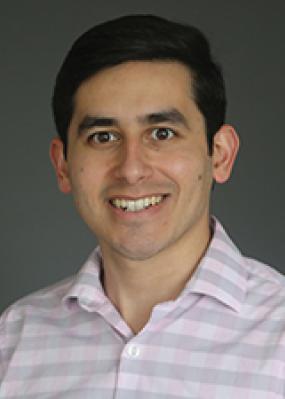'I am striving to ensure that the Latina experience remains at the center of US history.'
University of Kansas faculty are striving to advance knowledge, interpret our world, solve problems, spark innovation, create beauty and catalyze imagination through their research, scholarship and creative activity. Through the “I Am Striving” series, we’ll learn more about what inspires KU researchers, as well as the goals and impact of their work.
Q&A with Tiffany González, assistant professor of history
Explain your research as you would explain it to someone outside your field, such as your grandparents.
As a historian, I examine underrepresented histories, particularly of Latinas and Chicanas, who have shaped American politics in late 20th century. A lot of them are ordinary women who came out of the grassroots and moved into electoral politics during a time of intense political divide, and they did that to find ways to help their communities and themselves for rights.
What does your research look like? What methods do you use?
I rely a lot on newspapers, government documents, photographs, oral histories and maps to understand, how did Latinas shape the political scene during the late 1970s and '80s? Sometimes when I walk into an archive and I've requested documents, I don't always find what I need. So it's always searching through documents and hoping I at least find one instance where I can reconstruct the experiences of women who contributed to the social movements of that time.
What inspires your research? Why are you passionate about this work?
I'm really inspired by the women who take center stage in my book. Many of these women are ordinary, grassroots women who saw challenges during this intense political divide in the '60s and '70s as opportunities to create change in their own communities. They're unsung heroes that deserve a place within our memory and our experience as Americans.
How does your research directly impact your field, society, Kansas and the world?
My research really influences my field and makes it rethink who are political actors and what we mean by political leadership in American politics and histories of the U.S. It also makes us think a little bit more deeply about issues about gender and race and class within American society. And so a lot of these unsung heroes inspire me and make me passionate to tell their stories because they haven't received recognition. I think it's so important, especially for the Mexican American demographic in Kansas and in this country, to be recognized as contributors in shaping and molding our society.
What is a recent study/example of work you’d like to share?
I really hope that in addition to the research that I write about and teach about, that it's shared with the broader public audience outside the university walls. One form that I really enjoy using is podcasting. I was recently interviewed by "She's History" that is spearheaded by a filmmaker, Laura Boersma, out of California, where I talk about Irma Rangel, the first Mexican American woman elected to the Texas House of Representatives in 1976. She went into office in 1977 and remained in office until 2003. That's one piece of how I want my work to be broadcasted to the broader public.
What do you hope are some of the outcomes of your research and work?
I really hope my research inspires a new group of Latinas to engage in social change, but also a younger group of Latinas to know that they have the power to transform society and to fight for representation in public policy and in government — and to know that they can be political leaders. I hope that they learn that they can look at these women as role models and be inspired to use their tactics and strategies to create change in American society.
